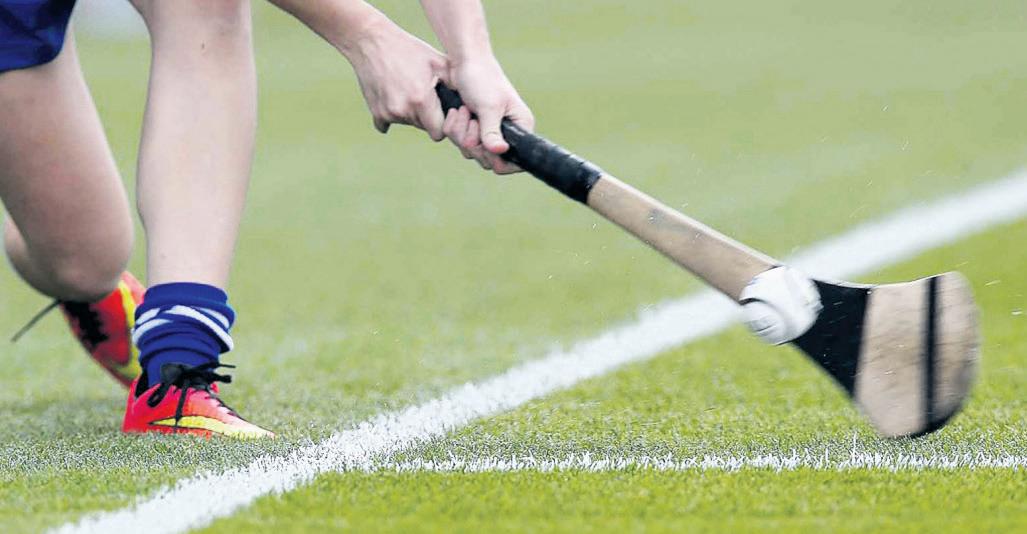
2 minute read
Young car crash victim ‘died peacefully’
ANTRIM
A YOUNG man who died a week after being injured in a car accident in Co. Antrim has been remembered by friends and family.
Advertisement
Matthew Anderson died “peacefully in hospital” on June 6, a week after he was involved in a two-vehicle car accident in Crumlin on May 31.
The collision, which occurred on the Moira Road at around 7.15am, also claimed the life of Belfast pensioner Robert Laverty.
The 74-year-old was pronounced dead at the scene.
Mr Anderson, 28, who lived in Lisburn, was taken to hospital for treatment of his injuries, but it was confirmed by PSNI officers on June 6 that he had since died.
In a post confirming his death Mr Anderson’s family stated he was “muchloved” and his untimely death was “very deeply regretted by the entire family circle”.
Friends and family turned out for a Service of Thanksgiving for Matthew’s life which was held in Broomhedge Methodist Church on Friday, June 9 at 11am.
Thereafter he was moved to Lislooney Presbyterian Church Burial Ground, Armagh for a committal cerermony.
The family requested donations be made to Air Ambulance (NI) rather than flowers, following his death.
Mr Anderson leaves behind his parents Matthew and Jenny, brothers Robert and Patrick, sister Julie and girlfriend Joanne.
Public vote for elected mayor
DUBLINERS could vote next year on whether the capital should have a directly elected mayor with executive powers.
Taoiseach Leo Varadkar has stated that such a vote could be held on the same day as the local and European elections in early June 2024.
Cabinet ministers are considering whether to press ahead with the recommendation from the Dublin Citizens’ Assembly.
In 2022 assembly members recommended devolving 15
Dublin
policy areas to a directly elected mayor and to hold a vote to decide on the establishment of the office.
These policy areas include homelessness, housing, community healthcare, transport, the environment and emergency services.
Speaking on his way into Cabinet on June 7, the Taoiseach said the recommendations would be referred to Joint Oireachtas Committees.
“We will be looking for a report from those committees before the end of the year so we can then make a decision and respond from Government early in the new year with a view to putting a question to the people of Dublin at the same time as the local and European elections as to whether we should have a directly elected mayor and reform local government in Dublin,” he said.
The Citizens’ Assembly also recommended that the mayor have the power to raise revenues and to borrow.
Another recommendation was that the mayor would be elected for a five-year term, for a maximum of two terms.
Episode 10: The Streets
Father Conmee, the smooth Jesuit from Belvedere, is described on his walks, and in conversation with Mrs Mary Sheehy, wife of the Home Rule MP. The Earl of Dudley, Viceroy, who owned Ireland’s first motorcar, drives out for luncheon and his entire retinue is listed.
Episode 11: The Concert Room
Two spirited barmaids, Miss Kennedy and Miss Douce, are in agreement: “Aren’t men frightful idiots?” Bloom eats liver and mashed potatoes. Music. It’s remarked that “tenors get women by the score”.
Episode 12: The Tavern
Exhaustive lists from Irish history from Niall of the Nine Hostages to O’Donovan Rossa, including many not Irish (the Queen of Sheba, Lady Godiva). Ireland’s place in Europe is affirmed, and old Irish trade with France and Spain recalled.
Episode 13: The Rocks
Gerty McDowell, a “jilted beauty”, is watched by Bloom, erotically aroused to solo raptures by the imagined “cry of a young girl’s love”. Poor Gerty has a limp, and so, “left on the shelf”.
Episode 14: The Hospital
A dense and complex chapter which appeals to the scholars but which I find impenetrable.
Episode 15: The Brothel









